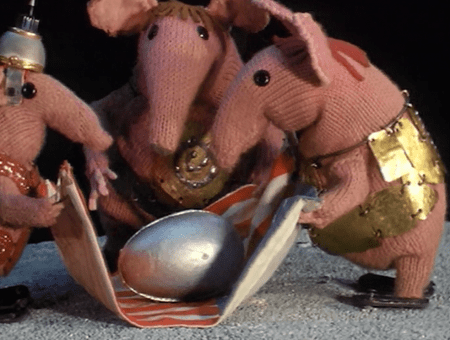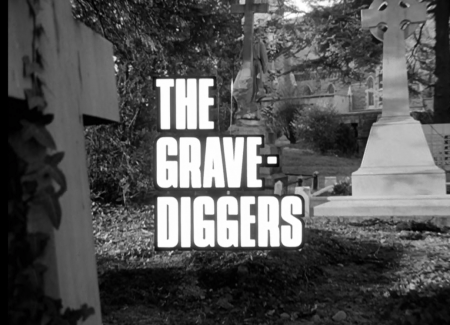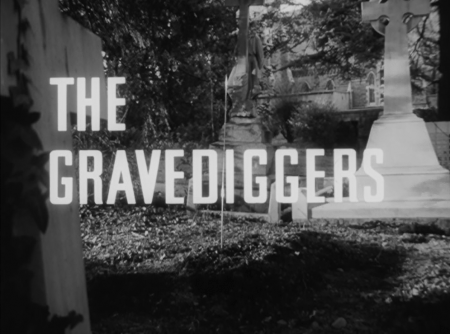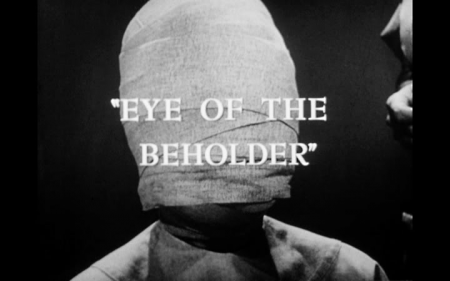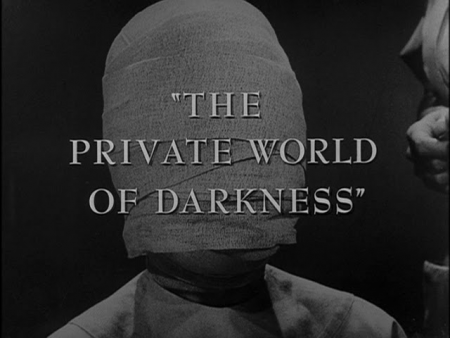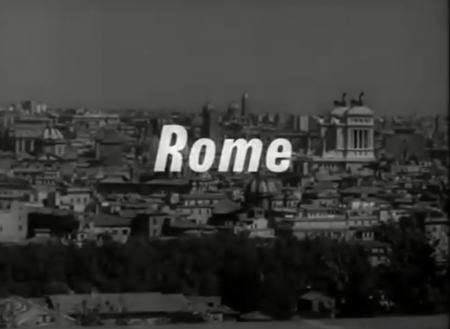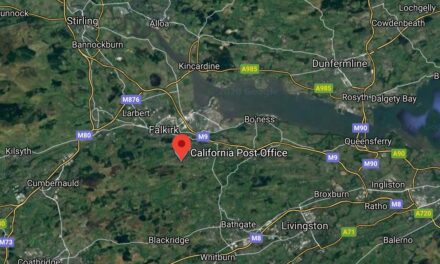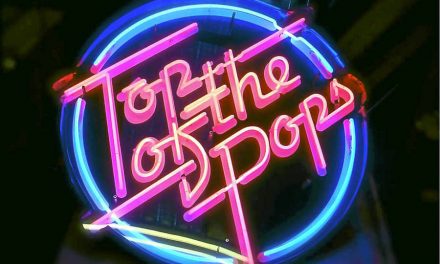My wife and I are rather fond of the very charming children’s animation Clangers (1969-1974) [ii]. These kind, loveable, knitted, whistling, stop-motion aliens are just irresistible and one of those slices of childhood that can be revisited again and again.
There’s a really nice episode where the Soup Dragon is upset. She’s all broody and makes a nest from macaroni branches, so the Iron Chicken tells Tiny Clanger to fill an iron egg with a jewel berry and some copper leaves and rain from the cloud. After the Iron Chicken has shone a green light on it, the Soup Dragon hatches the egg… and inside is the Baby Soup Dragon, meaning that the Soup Dragon isn’t the only one in the universe any more. Awwww. That episode’s called The Egg.
There’s another really good one where the Iron Chicken seems very agitated and upset. An iron egg lands on the Clangers’ world which the Clangers place in a crater, forming a nest for the Iron Chicken. When the egg falls down inside their planet, Major Clanger retrieves it to find it broken… and the new born Iron Chick collapses, but is revived not by soup nor blue string pudding but with nuts and bolts before settling down with its mum. Awwww. That episode’s called The Egg.
But unlike the shows I looked at last time, The Egg. 1970. BBC1. 25 January, 17.55. and The Egg. 1971. BBC1. 23 May, 17.05 aren’t different edits of the same programme, they’re two entirely different programmes with the same title.
You see the problem? Especially from my data developer point of view where everything needs to fit neatly into fields and files and be sortable and identifiable. What I’d hope would be a unique identifier – as in an episode title within a series [iii] – isn’t a unique identifier at all. So, once again, I acknowledge that Leeds-Harvard dating system does have its uses in helping to resolve and distinguish between the two [iv].
And if you think that’s bad granny, as m’colleague Alan Barnes reminds me, the BBC One daytime medical drama Doctors (2000-) has had at least three episodes called Home Truths – 8/35 (12 June 2006), 18/27 (11 May 2016) and 19/180 (14 March 2018) – and one called Home Truth as 15/36 (22 May 2013) just to confuse the matter.
So for ‘episode title’/‘episode’ relationships, that’s a one-to-many relationship. But what about the instances of many-to-one? For example, compare
with
Do I call this episode The Grave-Diggers or The Gravediggers? Same programme – two different prints, but with marginally different titles [v]. Or – more radically – this episode of The Twilight Zone which when it first aired on the network on 11 November 1960
but by the time of its networked repeat on 15 June 1962
all because of potential legal action taken over the original title, forcing a new name to be used,
So, already a single programme can have many titles. Even in its original language – that’s even before we get anywhere near either The Grave-Diggers or The Gravediggers being turned into Les Fossoyeurs or Die Totengräber or Los Sepultureros. All of which, I guess, are also valid variant titles and will require me either adding more files to my existing data table or another new table entirely to house them.
At times, you think it’d be just far easier if nothing had titles and we just started at the beginning with Episode 1, Episode 2, Episode 3 and so on… That’s a nice neat unique identifier isn’t it? And, you know, I used to curse programmes that didn’t have on-screen titles. Used to have to spend hours painstakingly matching them up by cast list from the Radio Times (or whatever) to any volumes of James Gianakos Television Drama Series Programming that I could lay my hands on. I mean, I now know that this episode of Danger Man (1960-61) [vi] is actually called View from the Villa but opening after the credit sequence with this as a caption…
But the worst nightmare of all has to be Doctor Who (1963-Hell Freezing Over). If there’s one thing guaranteed to cause controversy, it’s asking what the stories are called up to the introduction of collective serial titles (e.g. The Savages Episodes 1 to 4) in 1966 [vii]. Before that, each weekly episode has its own individual title.
As such, Doctor Who’s arch enemies the Daleks first appear in a narrative which spans seven episodes entitled The Dead Planet, The Survivors, The Escape, The Ambush, The Expedition, The Ordeal and The Rescue. And the problem is that we all want a handy way of referring to this very important piece of television [viii] we don’t want to have to call it The Dead Planet/The Survivors/The Escape/The Ambush, The Expedition, The Ordeal/The Rescue. It’s a bit of a fag [ix].
And this is cranking the ‘serial title’/’episode title’ relationship right up to the dreaded many-to-many relationship which database developers hate…
So, when referring to ‘Serial B’ (which is what the BBC referred to this group of shows as), what name should I use? The original storyline was headed The Survivors, and then it’s formally commissioned as Doctor Who and the Mutants [x], referred to in production memos as The Mutants and/or Beyond the Sun, after which a promotional document names it as Dr Who and the Mutants (working title). The camera scripts are just marked Serial ‘B’. It was then marketed abroad as The Mutants – variations of which also appear on internal documents – which was how fandom also referred to it in 1972 before the Radio Times christened it The Dead Planet (on the grounds that they’d take first episode titles for the whole serial) in 1973 – the same year that a reprint of its 1960s novelisation was published with the moniker Doctor Who and the Daleks.
Thankfully, since 1980, the title The Daleks has been pretty much universally adopted… mainly because it’s clear what it’s about and it avoids confusion with another Doctor Who serial entitled The Mutants which came along in 1972 (and which doesn’t feature Daleks). This seems to work quite well for most people as a common term of reference… despite the fact that nobody seemed to use this title for a good 17 years or so of the serial’s existence [xi].
Anyway, getting back to the everyday stories of knitted folk, thankfully somebody at the Radio Times had spotted the Clangers anomaly because the repeat scheduled for 22 December 1972 was referred to as The Chicken Egg and that for 9 February 1973 had become The Dragon Egg. So, that’s that sorted then…
… and furthermore, since prior to both of the editions of Clangers entitled The Egg, an even earlier instalment was Chicken on 30 November 1969, that’s another long-standing question answered.
Andrew Pixley is a retired data developer. For the last 30 years he’s written about almost anything to do with television if people will pay him – and occasionally when they won’t. He also has his own alternative names for articles that have gone very badly wrong or that he’s ashamed of or that he never wanted to write in the first place or for his fan fiction. He also tells small lies occasionally – but only for the purposes of a harmless joke. And he certainly wishes he’d used another name on The Avengers Files. Terrible book. Don’t waste your money…
Footnotes:
[i] You can Google that one when you have a moment.
[ii] Hey – that’s one of the times that putting these dates in brackets comes in handy. We don’t have to say Classic Clangers or Old Clangers to differentiate it from Clangers (2015-)… which we’re also very fond of by the way. And I’m saying ‘(1969-1974)’ rather than ‘(1969-1972)’ because I’m including the Vote for Froglet! election special broadcast on 10 October 1974 where one of the Clangers says something very rude at the end.
[iii] In database terms, when a ‘series title’/‘episode title’ combination will always be unique.
[iv] Because, in database terms, a ‘series title’/‘episode title’/‘original broadcast date’ combination should always be unique.
[v] I have no idea which the original broadcast one was. My gut reaction is that The Gravediggers was the original edit prepared with the earlier unused title sequence in Spring 1965, but when the titles were revised prior to the September 1965 debut with new graphics and typeface, that’s when The Grave-Diggers was prepared for broadcast.
[vi] Just doing the half-hours here, right? This week I’m treating the hours as a separate series. Probably have changed my mind by next week. At least I’m consistent about my inconsistency.
[vii] Another oddity is that the five-part serial The Dominators has – strictly speaking – no Episode 3. There’s Episode 1, Episode 2, Episode 4 and Episode 5… but the week that Episode 3 was recorded, the caption slide was apparently not superimposed. Hence, theoretically, that one’s just The Dominators.
[viii] Other very important pieces of television are available. I know it doesn’t seem that way at times – but, honestly, they are. Trust me. I’ve looked.
[ix] Serial V is even worse. That’s twelve episodes. And a prelude episode which causes even more confusion… despite the fact that you’d think that a story with a single episode would cause fewer problems than one with many episodes wouldn’t you?
[x] The presence or absence of the Doctor Who and… prefix is another can of worms. Don’t even go there…
[xi] To confuse things further, the title of the last episode – The Rescue – is shared with the overall title for two 1965 episodes: The Powerful Enemy and Desperate Measures. But let’s not go there either…


